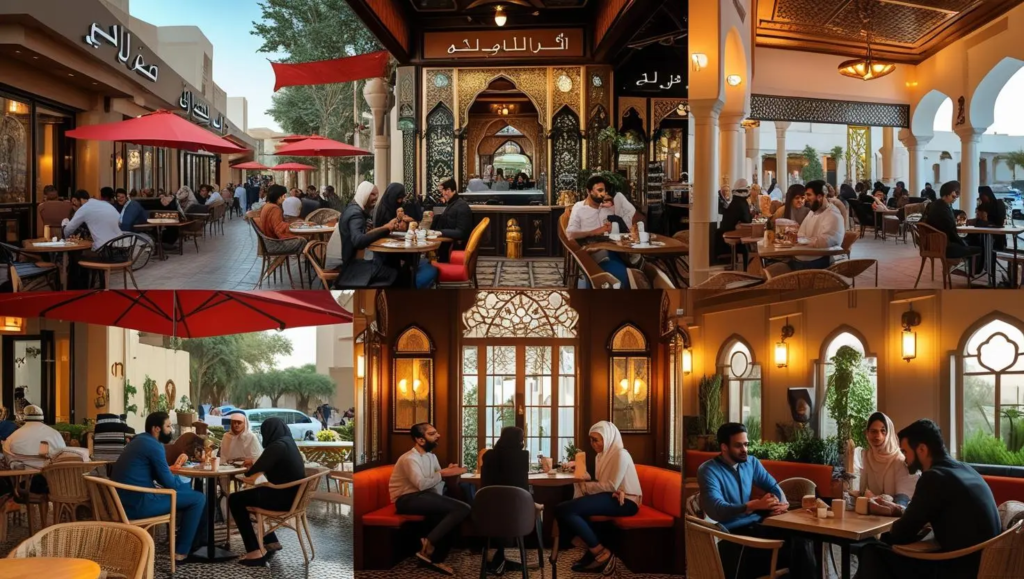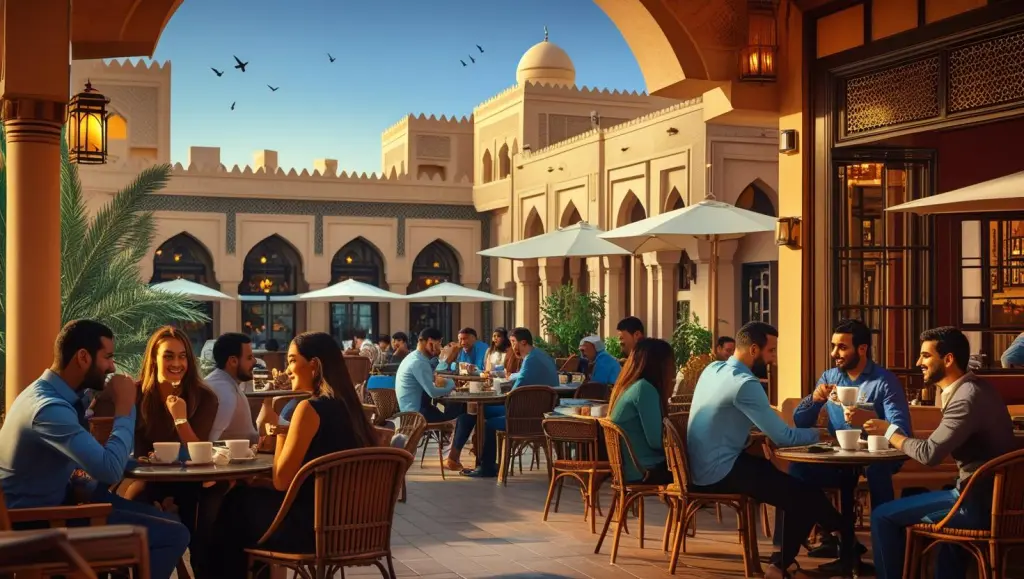Cafés in Kuwait are far more than simple places to grab a drink. They have grown into vibrant hubs where conversations flow, friendships deepen, and creativity flourishes. Over the past few decades, café culture has become deeply ingrained in the social fabric of the country. Whether located in a bustling city center or a quiet neighbourhood, these establishments welcome everyone with their warm ambiance and offer an environment that encourages human connection.
For many Kuwaitis, cafés have become an essential part of daily life. They provide a neutral ground where people can meet outside the formality of workplaces or the intimacy of homes. This openness is what makes café culture so powerful and unique, turning these spaces into true social pillars.
Cafés as Community Living Rooms
Unlike fast food restaurants or formal dining venues, cafés create an atmosphere where people feel comfortable to linger for hours. They function as living rooms for the community, offering cozy corners, friendly service, and an inviting environment. Families gather to share stories, friends celebrate milestones, and colleagues unwind after work.
The simple act of sitting with a cup of coffee or tea can turn into a meaningful social ritual. These casual meetups allow people to stay connected despite busy schedules, strengthening bonds within society. Over time, cafés have become safe spaces where people can laugh, discuss, and share moments without judgement.
A Crossroads of Generations
One of the most fascinating aspects of Kuwait’s café culture is its ability to unite generations. In many places, you might see grandparents enjoying traditional Arabic coffee alongside younger family members sipping trendy lattes or iced beverages. These encounters create opportunities for storytelling, knowledge sharing, and mutual respect between age groups.
This inter generational blend is crucial for preserving traditions while embracing modernity. Older patrons often appreciate seeing cultural customs maintained, while younger visitors add energy and innovation to the experience. The café becomes a bridge where old and new coexist beautifully.

Nurturing Creativity and Conversation
The relaxed and inspiring vibe of cafés often attracts artists, writers, students, and freelancers. The aroma of coffee, gentle background music, and comfortable seating create the perfect setting for creative thinking. Many people use these spaces to brainstorm new ideas, write assignments, or simply let their minds wander.
Some cafés in Kuwait go even further by supporting local artists through exhibitions or open mic events. Book clubs, poetry readings, and art displays are becoming common in these venues. This cultural exchange transforms cafés into more than businesses; they become cultural incubators that nurture talent and encourage meaningful conversations.
Celebrating Diversity in Flavors and Friendships
Kuwait is home to a multicultural society, and this diversity is beautifully reflected in its café scene. From traditional Arabic blends to Italian espressos and Japanese match, cafés celebrate the global love for coffee and tea. The variety of flavours attracts not only locals but also expatriates, creating an inclusive environment where everyone feels welcome.
Sharing drinks and food is one of the oldest forms of bonding. At cafés, people of different backgrounds sit side by side, exchanging stories and forming friendships. These informal interactions help break cultural barriers, promote understanding, and strengthen social ties across communities.
Cafés as Work Friendly Social Spaces
The rise of remote work and freelancing has transformed how people use cafés. Many establishments now cater to professionals who need a comfortable space to work while enjoying a drink. With WiFi, charging points, and quiet corners, cafés have become hybrid spaces that allow productivity and social interaction to blend seamlessly.
Students also benefit from this shift, often choosing cafés as study spots where they can focus yet still enjoy the company of friends. This dual purpose serving both as a workspace and a social hub adds to the versatility and relevance of cafés in modern Kuwaiti life.
Supporting Local Business and Identity
Beyond their social function, cafés contribute significantly to Kuwait’s economy. Many are locally owned and emphasise homegrown products. By sourcing local ingredients, hiring community members, and collaborating with Kuwaiti artists and suppliers, these cafés strengthen the national identity.
Supporting such businesses is more than an economic decision; it’s a cultural one. Each locally owned café tells a story through its décor, menu, and service. They remind visitors that Kuwait’s café culture is not just influenced by global trends but also deeply rooted in local traditions.

Social Rituals Reinvented
Visiting a café is no longer just about having coffee; it has become a cherished ritual. People often have their favorite spots where the baristas know their orders, and they have a preferred seat where they feel most comfortable. These routines provide a sense of belonging and stability in an otherwise fast-paced world.
Morning gatherings, afternoon breaks, and evening meetups are all part of the rhythm of café life. These moments offer relaxation, inspiration, and the chance to recharge emotionally while staying connected with loved ones.
Cafés in Times of Celebration and Reflection
Life is full of moments worth celebrating, and cafés provide the perfect setting for many of them. Whether it is a birthday, an engagement, or a small success at work, people often choose cafés to share their joy. The intimate and welcoming atmosphere makes celebrations feel personal and special.
On the other hand, cafés also offer quiet spaces for reflection during challenging times. A simple cup of tea, soft lighting, and calm surroundings can provide comfort to someone processing emotions. This balance of joy and solace is what makes cafés so meaningful in people’s lives.
The Future of Cafés and Social Life
Kuwait’s café culture continues to grow, with new concepts and experiences emerging regularly. Many cafés are experimenting with themed interiors, innovative beverages, and technology-driven services like online reservations and app-based ordering. These changes keep the café experience exciting while still preserving its core values of connection and comfort.
Looking forward, cafés are likely to play an even bigger role in social life. They may host workshops, cultural events, and networking sessions, becoming centres for learning and collaboration. As they evolve, their significance in Kuwait’s social landscape will only deepen.
Do follow Gulf Magazine on Instagram.
Also Read – Healthy Eating Trends Inspiring Innovative Menus Across Kuwait



